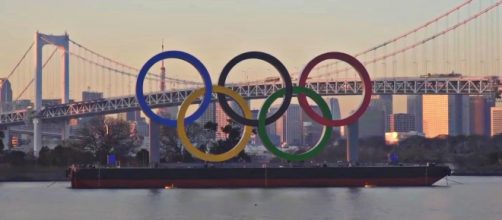On March 25, runners are scheduled to begin carrying the Olympic torch on a 121-day relay that will end in Tokyo on July 23, the day of the summer games' opening ceremony. Kyodo News said the route would take the torch through 859 municipalities in Japan's 47 prefectures. Details about the route are available at the Tokyo Organizing Committee of the Olympic and Paralympic Games, Tokyo2020.org.
According to Kyodo News, the organizing committee was encouraging people in Japan to watch online broadcasts of the relay. The event could be suspended if crowds along the relay route grew too large, the online publication said.
Clapping instead of shouting
Seiko Hashimoto, president of the organizing committee, was quoted by The Japan Times as saying precautionary measures against the coronavirus's spread would be “the top priority.”
Spectators at the relay were requested to wear masks, practice social distancing, and remain in their local prefecture, Kyodo News said. An additional request was for spectators to express their encouragement by applauding rather than shouting, the online publication said.
According to Kyodo News, about 300 of the roughly 10,000 torchbearers will be foreigners who must comply with Japan's entry restrictions. The Japan Times said torchbearers and staff members would be tested regularly.
Highlighting Fukushima's recovery
Kyodo News said Fukushima had been chosen as the starting point of the 121-day relay to draw attention to the area's recuperation from the earthquake, tsunami, and nuclear disaster of 2011. The online publication quoted a 76-year-old torchbearer from Fukushima as saying anti-COVID 19 measures had to be carried out rigorously, even if that meant hardly any spectators came out to see the relay.
Games without spectators?
The Japan Times noted that it had not yet been decided whether spectators would be permitted. The newspaper quoted Dick Pound, the most senior member of the International Olympic Committee's executive board, saying "spectators are nice to have but not must-haves." According to the paper, Pound said that the games organizers did not have to decide until May or June how many people would be allowed to attend the games.
According to The Japan Times, athletes at the Olympics will not be required to be vaccinated, but they will be tested every four days. The newspaper said participants from overseas would also have to give officials an itinerary for the first two weeks of their Japan stay. According to The Japan Times, foreign athletes will not be allowed to use public transportation without organizers' permission.


